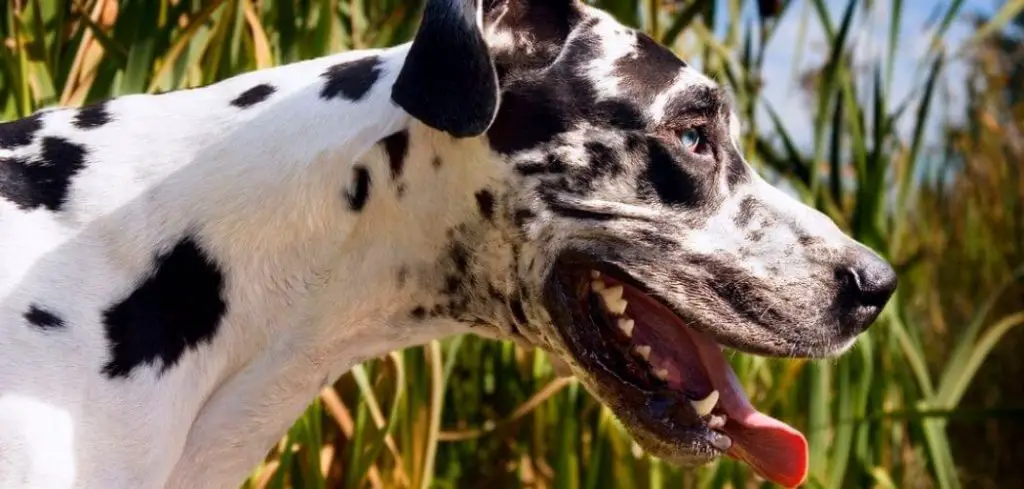When a dog starts wheezing and loses interest in food, it can send any pet owner into a spiral of concern. These symptoms could indicate anything from minor respiratory irritation to serious underlying illness.
We outline the common causes of wheezing and loss of appetite in dogs, what you can do at home, and when to seek veterinary help.
Dog Wheezing and Not Eating — Why It Happens
Wheezing and appetite loss can stem from respiratory infections, allergies, heart disease, or even digestive issues impacting breathing. Some dogs may wheeze due to airway inflammation or asthma-like conditions, while others lose their appetite from the discomfort of breathing difficulties.
In more serious cases, wheezing may be tied to heart problems or a collapsing trachea, which can also make eating difficult or distressing.

Common Causes of Dog Wheezing and Not Eating
Respiratory Infections
Respiratory infections like kennel cough, canine influenza, or pneumonia can cause wheezing due to airway inflammation and congestion.
When your dog has an upper respiratory infection, they may have trouble breathing comfortably, especially when active or lying down.
The effort of breathing through congested nasal passages can suppress appetite and make eating uncomfortable.
You might also notice coughing, nasal discharge, sneezing, or lethargy alongside wheezing and not eating.
These conditions are especially concerning in puppies, older dogs, or those with compromised immune systems.
Read more: Dog coughing and gagging not eating (Should you be concerned?)
Allergies or Asthma
Environmental allergens, such as pollen, dust, mold, or smoke, can trigger wheezing in dogs just like in humans.
Dogs with chronic allergic bronchitis or asthma-like syndromes may exhibit labored breathing, coughing, and a reduced desire to eat when symptoms flare up.
Some may even show signs of scratching, watery eyes, or licking their paws excessively. If the airways become inflamed or constricted, the discomfort can make your dog reluctant to eat.
Severe allergic reactions can cause sudden wheezing and should be treated as emergencies.
Collapsing Trachea
Small breeds like Yorkies, Chihuahuas, and Pomeranians are prone to a condition called collapsing trachea, where the windpipe becomes weak and flattens during breathing.
This leads to a characteristic honking cough, wheezing, and even gagging, especially when the dog is excited or eating.
If eating causes coughing or discomfort, a dog may avoid food altogether. This condition can become progressively worse over time and should be medically managed.
Heart Disease
In dogs with heart disease, especially congestive heart failure, fluid can build up in the lungs or around the heart, making breathing difficult and leading to wheezing or coughing.
When breathing becomes labored, many dogs stop eating because they feel unwell or too tired.
Other signs include a bloated abdomen, weakness, fainting episodes, and a bluish tint to the gums or tongue.
Heart conditions are more common in senior dogs and should be addressed promptly with veterinary care.
Inhaled Irritants or Foreign Objects
If your dog suddenly begins wheezing and won’t eat, they may have inhaled an irritant like smoke or perfume—or worse, a small object.
Inhaled foreign bodies such as grass awns or food particles can cause localized irritation or partial airway obstruction.
Wheezing may come on suddenly and be accompanied by gagging or pawing at the face.
The discomfort or pain can cause your dog to refuse food, and if breathing is visibly labored, it may be a medical emergency.
What to Do If Your Dog Is Wheezing and Not Eating
Keep your dog in a calm, quiet environment to minimize stress and support easier breathing. Limit physical activity while symptoms are present.
Use a humidifier in the room where your dog rests to help moisten airways and ease breathing, especially if the air is dry.
If your dog has mild congestion, gently wiping the nose with a warm, damp cloth can make them more comfortable.
Try offering soft, aromatic foods like plain boiled chicken or low-sodium broth to encourage eating, but do not force-feed.
Avoid exposure to smoke, strong fragrances, dust, or allergens until the cause is diagnosed. These can worsen wheezing and delay recovery.
When to Call or Visit Your Vet
Seek immediate veterinary attention if:
Your dog is wheezing and visibly struggling to breathe.
The wheezing is sudden and severe.
Gums appear pale or bluish.
There is persistent coughing, especially with signs of pain or distress.
Your dog has stopped eating for more than 24 hours.
Vomiting, diarrhea, or lethargy accompanies the symptoms.
You suspect your dog has inhaled a foreign object.
Timely diagnosis and treatment can prevent complications and ensure your dog’s symptoms don’t worsen.
Read more: Dog Breathing Heavily and Not Eating (How serious is it?)
Key Takeaway
Wheezing paired with loss of appetite in dogs can be mild or potentially life-threatening, depending on the cause.
While minor irritants or allergies can sometimes be managed at home, persistent symptoms or signs of respiratory distress require prompt veterinary attention.
Watch your dog’s behavior closely, provide supportive care, and don’t hesitate to contact your vet when symptoms persist or escalate.
